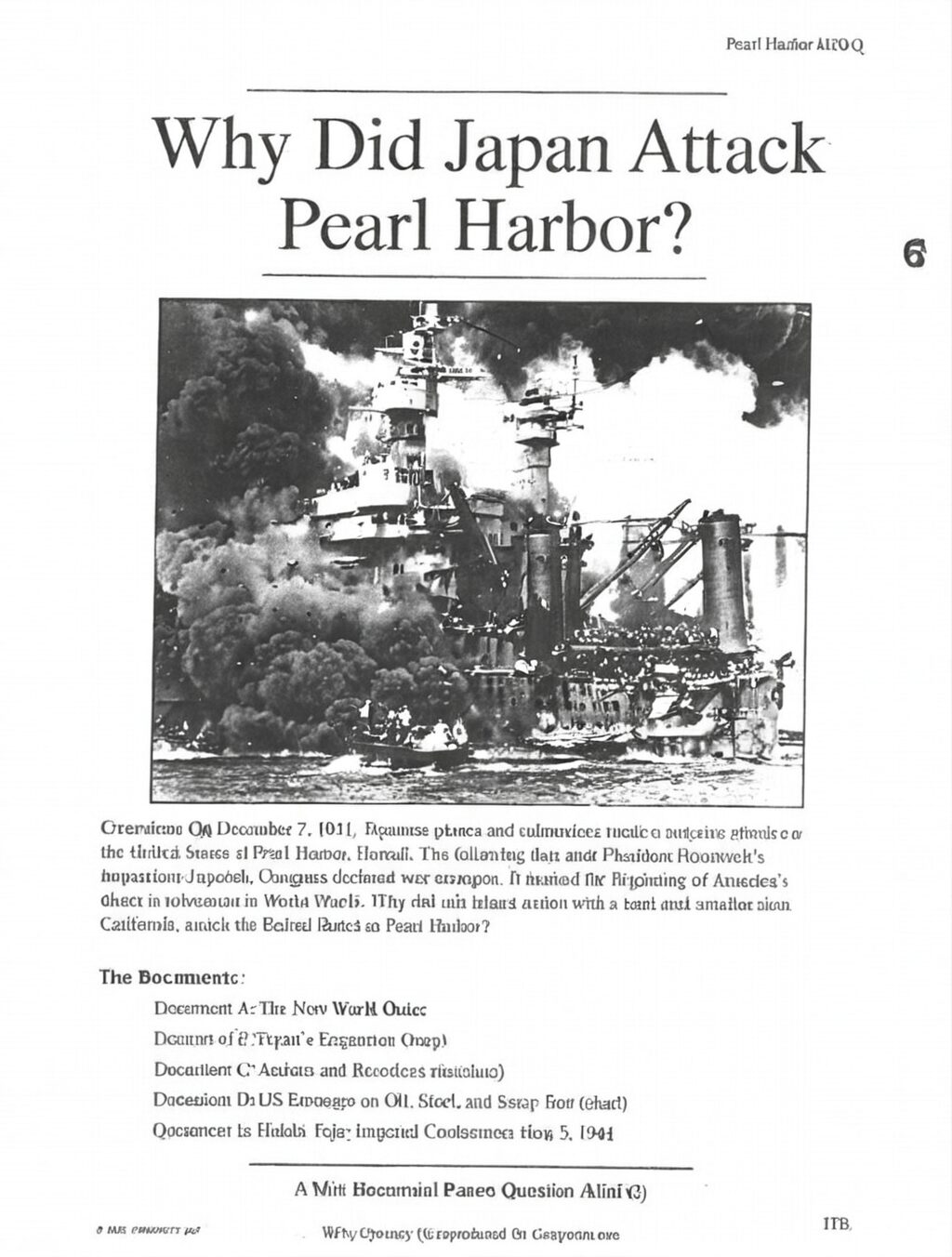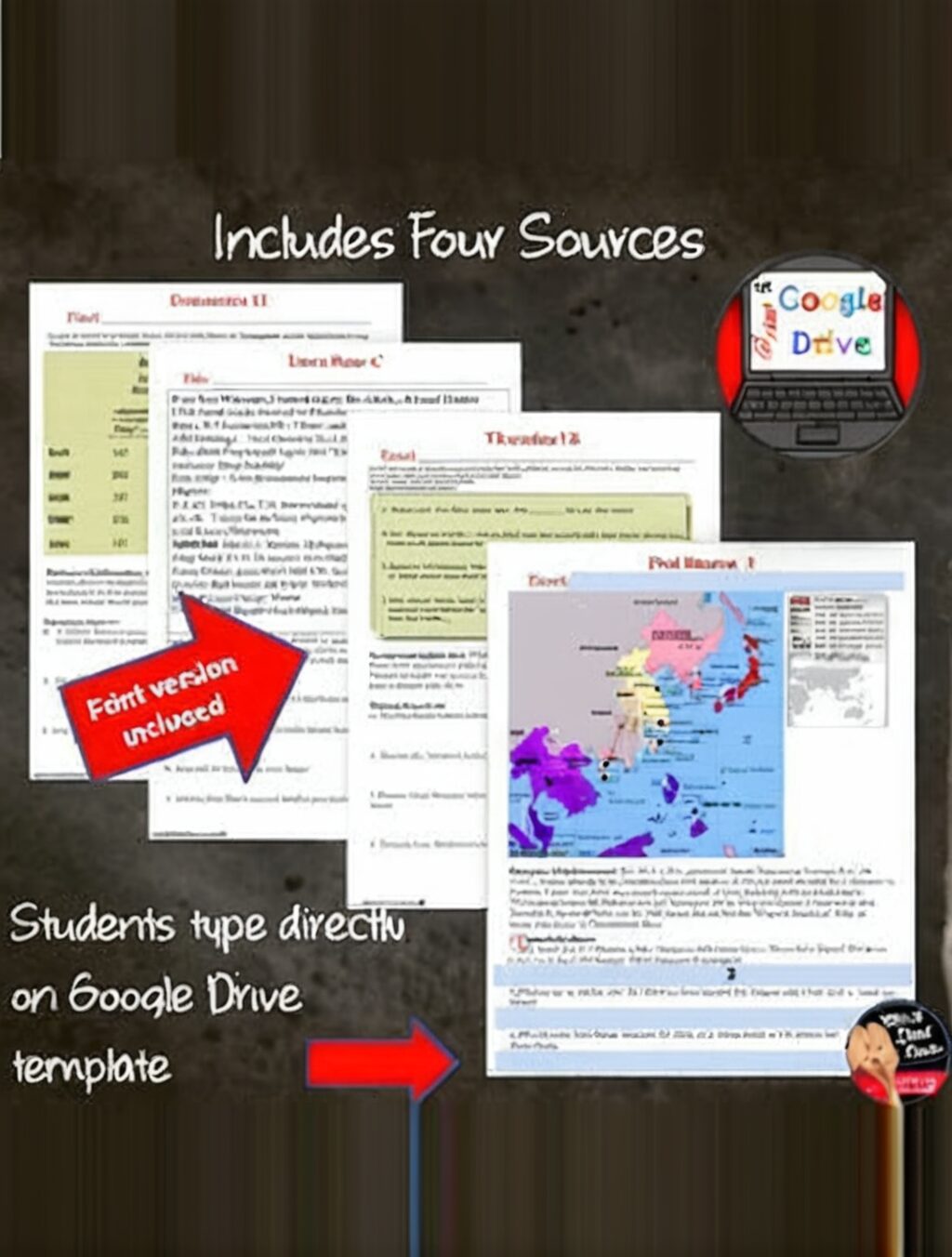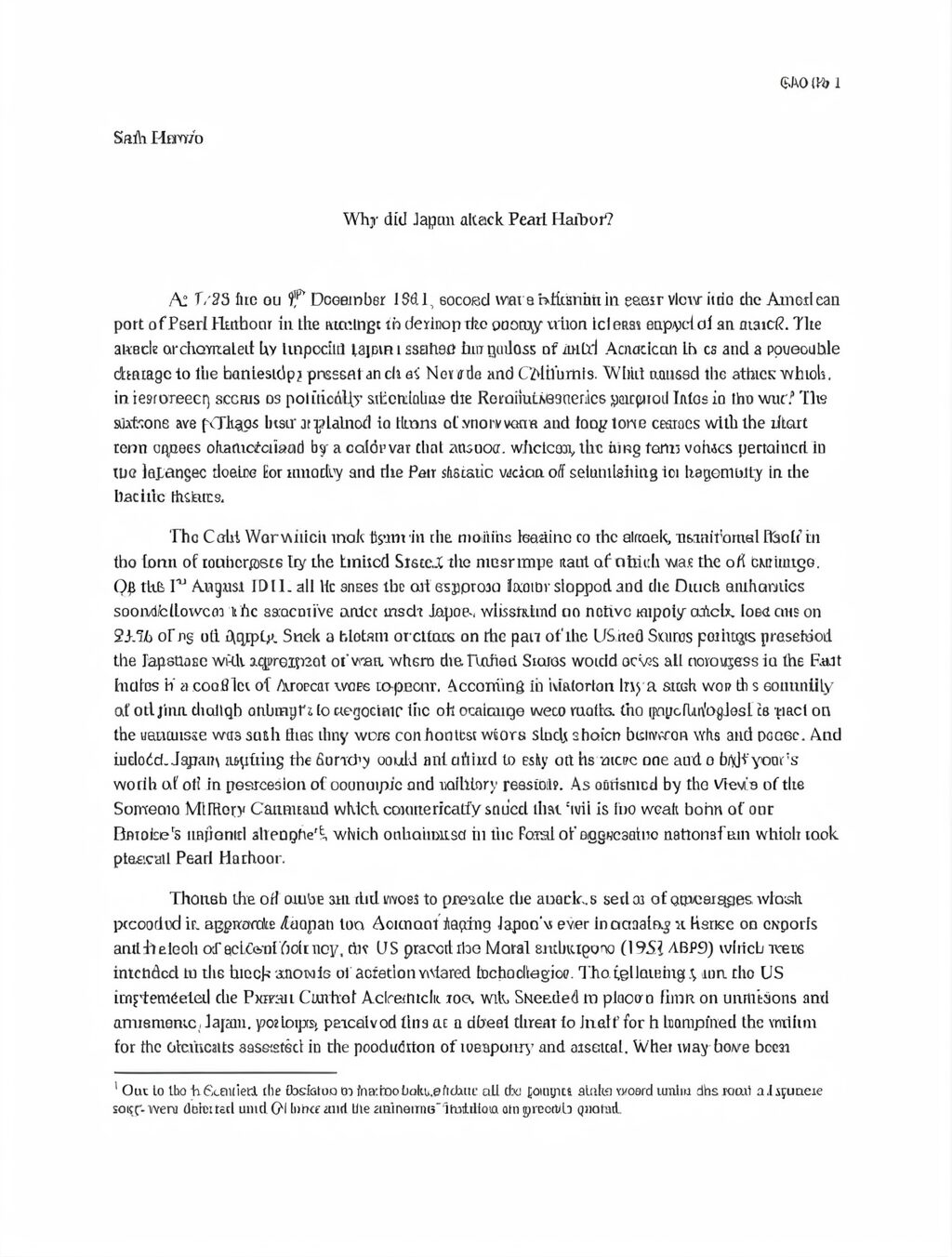Why did Japan Attack Pearl Harbor? DBQ Document Answer Key Quizlet
Win a Free Trip to Japan!
Experience cherry blossoms and ancient temples
In this blog post, we will explore the reasons why Japan attacked Pearl Harbor on December 7, 1941. We will examine the historical context of the attack, the events leading up to it, and the consequences of the attack. By the end of this post, you will have a better understanding of one of the most pivotal events in American history.
Historical Context
Japan’s attack on Pearl Harbor was a surprise military strike by the Imperial Japanese Navy Air Service upon the United States against the U.S. naval base at Pearl Harbor in Honolulu, Hawaii, just before 8:00 a.m. (local time) on Sunday, December 7, 1941. The attack resulted in the sinking of four U.S. battleships and the damage of four others. Over 2,400 Americans were killed and over 1,000 were wounded. The attack on Pearl Harbor led to the United States’ entry into World War II.
Events Leading Up to the Attack
In the years leading up to the attack on Pearl Harbor, Japan had been expanding its empire in Asia. Japan had invaded Manchuria in 1931 and had begun to wage war against China in 1937. The United States had condemned Japan’s aggression and had imposed economic sanctions on Japan.
In response to the economic sanctions, Japan decided to attack Pearl Harbor in order to cripple the U.S. fleet and prevent the United States from interfering with Japan’s plans for conquest in Asia.
Consequences of the Attack
The attack on Pearl Harbor had a profound impact on the United States. The attack led to the United States’ entry into World War II and resulted in the deaths of over 2,400 Americans. The attack also caused extensive damage to the U.S. fleet and to the infrastructure of Pearl Harbor.
FAQs
- Why did Japan attack Pearl Harbor?
- When did Japan attack Pearl Harbor?
- How many Americans were killed in the attack on Pearl Harbor?
Japan attacked Pearl Harbor to cripple the U.S. fleet and prevent the United States from interfering with Japan’s plans for conquest in Asia.
Japan attacked Pearl Harbor on December 7, 1941.
Over 2,400 Americans were killed in the attack on Pearl Harbor.
Conclusion
The attack on Pearl Harbor was a turning point in American history. The attack led to the United States’ entry into World War II and had a profound impact on the course of the war. The attack also remains one of the most controversial events in American history, and its legacy continues to be debated today.
why did japan attack pearl harbor dbq document answer key quizlet
Why Did Japan Attack Pearl Harbor? DBQ Answer Key
In this blog post, we will explore the reasons why Japan attacked Pearl Harbor on December 7, 1941. We will examine the historical context of the attack, the events leading up to it, and the consequences of the attack. By the end of this post, you will have a better understanding of one of the most pivotal events in American history.
Historical Context
Japan’s attack on Pearl Harbor was a surprise military strike by the Imperial Japanese Navy Air Service upon the United States against the U.S. naval base at Pearl Harbor in Honolulu, Hawaii, just before 8:00 a.m. (local time) on Sunday, December 7, 1941. The attack resulted in the sinking of four U.S. battleships and the damage of four others. Over 2,400 Americans were killed and over 1,000 were wounded. The attack on Pearl Harbor led to the United States’ entry into World War II.
Events Leading Up to the Attack
In the years leading up to the attack on Pearl Harbor, Japan had been expanding its empire in Asia. Japan had invaded Manchuria in 1931 and had begun to wage war against China in 1937. The United States had condemned Japan’s aggression and had imposed economic sanctions on Japan.
In response to the economic sanctions, Japan decided to attack Pearl Harbor in order to cripple the U.S. fleet and prevent the United States from interfering with Japan’s plans for conquest in Asia.
Consequences of the Attack
The attack on Pearl Harbor had a profound impact on the United States. The attack led to the United States’ entry into World War II and resulted in the deaths of over 2,400 Americans. The attack also caused extensive damage to the U.S. fleet and to the infrastructure of Pearl Harbor.
FAQs
- Why did Japan attack Pearl Harbor?
- When did Japan attack Pearl Harbor?
- How many Americans were killed in the attack on Pearl Harbor?
Japan attacked Pearl Harbor to cripple the U.S. fleet and prevent the United States from interfering with Japan’s plans for conquest in Asia.
Japan attacked Pearl Harbor on December 7, 1941.
Over 2,400 Americans were killed in the attack on Pearl Harbor.
Conclusion
The attack on Pearl Harbor was a turning point in American history. The attack led to the United States’ entry into World War II and had a profound impact on the course of the war. The attack also remains one of the most controversial events in American history, and its legacy continues to be debated today.
dbq why did japan attack pearl harbor answers
Why Did Japan Attack Pearl Harbor? DBQ Essay
Introduction
The attack on Pearl Harbor on December 7, 1941, was a pivotal event in American history. The attack led to the United States’ entry into World War II and had a profound impact on the course of the war. In this essay, we will explore the reasons why Japan attacked Pearl Harbor. We will examine the historical context of the attack, the events leading up to it, and the consequences of the attack.
Historical Context
In the years leading up to World War II, Japan had been expanding its empire in Asia. Japan had invaded Manchuria in 1931 and had begun to wage war against China in 1937. The United States had condemned Japan’s aggression and had imposed economic sanctions on Japan.
In response to the economic sanctions, Japan decided to attack Pearl Harbor in order to cripple the U.S. fleet and prevent the United States from interfering with Japan’s plans for conquest in Asia.
Events Leading Up to the Attack
In the months leading up to the attack on Pearl Harbor, Japan made a number of diplomatic overtures to the United States. However, these overtures were rejected by the United States, which was unwilling to tolerate Japan’s aggression in Asia.
As a result of the failed diplomatic negotiations, Japan decided to attack Pearl Harbor. The attack was planned in great secrecy, and the Japanese were able to achieve complete surprise.
Consequences of the Attack
The attack on Pearl Harbor had a profound impact on the United States. The attack led to the United States’ entry into World War II and resulted in the deaths of over 2,400 Americans. The attack also caused extensive damage to the U.S. fleet and to the infrastructure of Pearl Harbor.
Conclusion
The attack on Pearl Harbor was a turning point in American history. The attack led to the United States’ entry into World War II and had a profound impact on the course of the war. The attack also remains one of the most controversial events in American history, and its legacy continues to be debated today.


